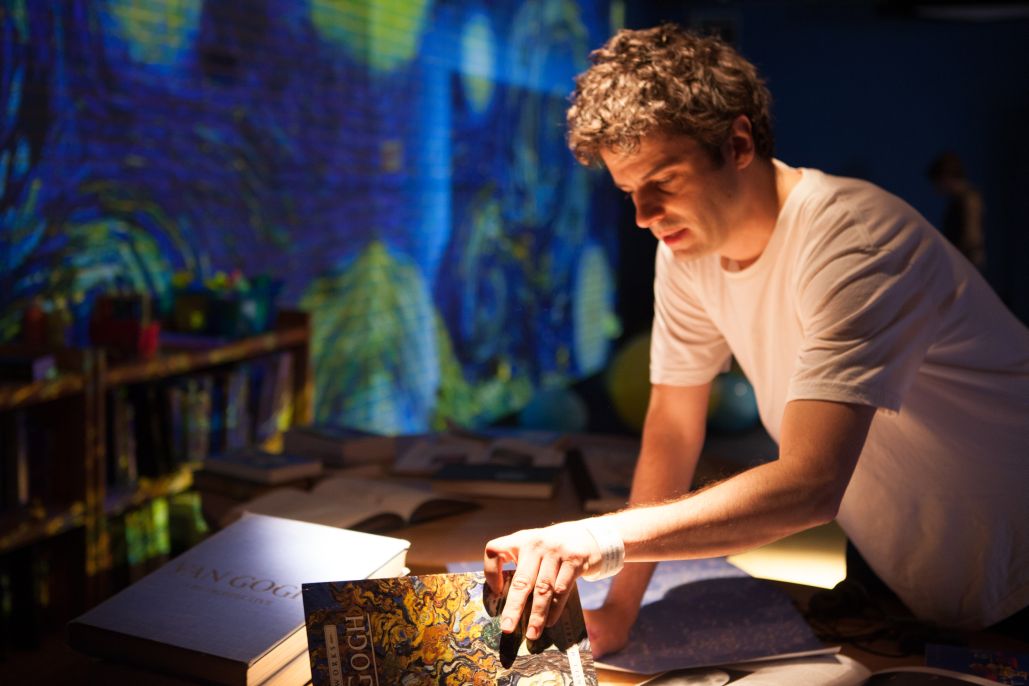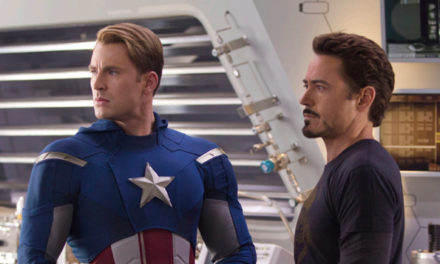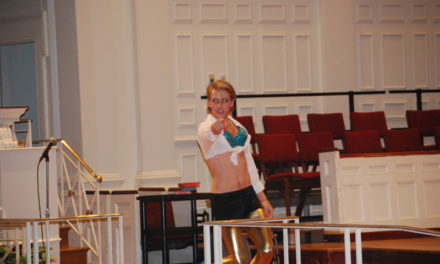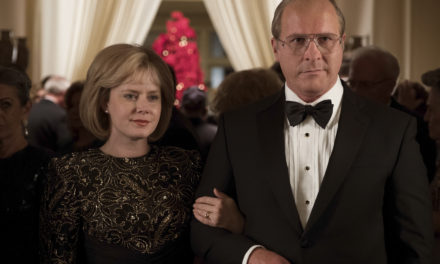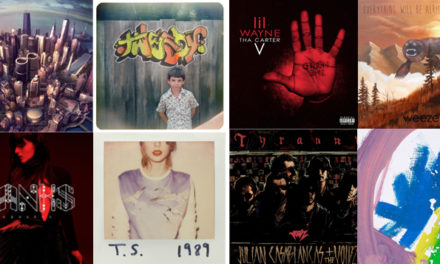When film critics lament the fall of mainstream Hollywood and simultaneously laud the indie scene, I tend to roll my eyes and groan. Don’t take that the wrong way — I’m not fundamentally opposed to anything from outside of the major studios. In fact, some of my favorite films were born out of the ‘80s independent sleaze and cheese scene. However, I am opposed to indie films that are excessively twee and pretentious in their conception without realizing how transparently shallow they actually are, as is the case with the latest indie darling, Paul Dalio’s Touched With Fire.
The story follows two poets with manic-depression: Carla (Katie Holmes) and Marco (Luke Kirby). After being committed to a psychiatric hospital, the two meet in group therapy and soon fall in love. While Carla is quieter and more introspective, writing poetry, Marco is brash and outspoken, frequently breaking into slam poetry and freestyle raps. Once they leave the hospital, they find that being off their medication allows them to fully engage their creativity. They descend into a life of carefree debauchery against the wishes of their parents, who try to keep them apart.
The hill that a screenwriter must climb when centering a script around characters with mental disorders is finding a balance of “normal” and mentally unhinged behavior to give the audience the chance to invest in their story. Allowing the audience to experience the character functioning normally allows them to relate to the character, making it all the more tragic to watch the character struggle with their mental disorders.
Touched With Fire, however, doesn’t make the characters grounded enough for the audience to engage with them. The film begins with Carla and Marco already diagnosed as mentally ill, acting erratically, and never really explores what they’re like when they aren’t experiencing a manic episode. Lip service is given to the idea that they can have somewhat normal lives when on their medications, but the film never fully seems to want to explore how they function while they’re on medication. It’s especially problematic in regards to Marco, who bounces between being a cynical conspiracist and an abusive loose cannon without any consistency. While it could be argued that this random behavior is the result of his mental disorder, it leaves the audience without any sympathy for him when he abuses everyone in his life.
The film has two heavy-handed themes that it wants to pretend are groundbreaking: that the mentally ill are creative geniuses who are being suppressed by medication, and that they have more in common with normal people than we think. This point is driven home with all of the subtlety of Carla and Marco actually reading a textbook on brain anatomy and pointing out differences in neuron activity. Yes, I know brain activity is different in patients with mental disorders. I’ve already seen A Beautiful Mind and One Flew Over the Cuckoo’s Nest before. What else do you have?
Since the film is a cliché love story, it’s inevitable that the two lovers are going to face objections from their parents. While most films would portray the parents as caricatures that initially protest the relationship but eventually give in and accept their kid’s choices, Touched With Fire tries to make the parents seem like rational human beings, which ironically works against the film. While it’s noble to try and make the parents’ actions seem grounded in reality, the conflict is weaker because of it, since the parents are more than forgiving of their kids’ actions, which includes everything from attempted suicide to car theft. It makes Marco and Carla seem reckless and dangers to themselves rather than misunderstood people with mental disorders.
The actors all do commendable jobs with the material they’re given. Katie Holmes as Carla and Luke Kirby as Marco sell the hell out of their characters, even though they aren’t written particularly well. The one shining light in the film is Griffin Dunne as Marco’s father, George. I’ve been a fan of his since first seeing him in An American Werewolf in London, and his turn here is a reminder that he’s adept in both comedic and dramatic roles. He exudes a natural easy-going likability and paints a portrait of a father continually failing to help his son. His understated performance is based mostly around his facial expressions, portraying a man who is worn out yet diligent in the face of adversity, making him immediately sympathetic to the audience.
Like most indie flicks these days, Touched With Fire is shot entirely around extended dialogue segments, broken only by the use of montages scored to offbeat instrumental music. Films built around snappy banter or quirky dialogue aren’t necessarily bad in theory, but most filmmakers trying to ape Woody Allen fail to grasp what made Allen’s best films work, namely his jaded developmentally arrested view of society, people and himself. Marco and Carla’s conversations on the power of imagination and pretending to be astronauts isn’t enlightening or endearing when being spouted by characters who are nearly 30 years old. Even the ending of the film is eerily similar to that of Woody Allen’s Annie Hall but without the bittersweet, poignant feeling that Allen captured.
For all its waxing poetic on the relationship of madness and genius, the film doesn’t offer a fresh perspective on the subject it seems so enamored with. February is usually a wasteland for good films, and Touched With Fire is likely going to be forgotten by most in a few months. Give this one a pass.
Grade: D-
Film Critic Vikrant Nallaparaju is a College Sophomore from Houston, Texas studying Anthropology and Human Biology. This is his second year writing for the wheel and the first serving as film a critic. When it comes to movies, he can usually be found watching the films of Joe Dante and lamenting the fall of John Carpenter.

